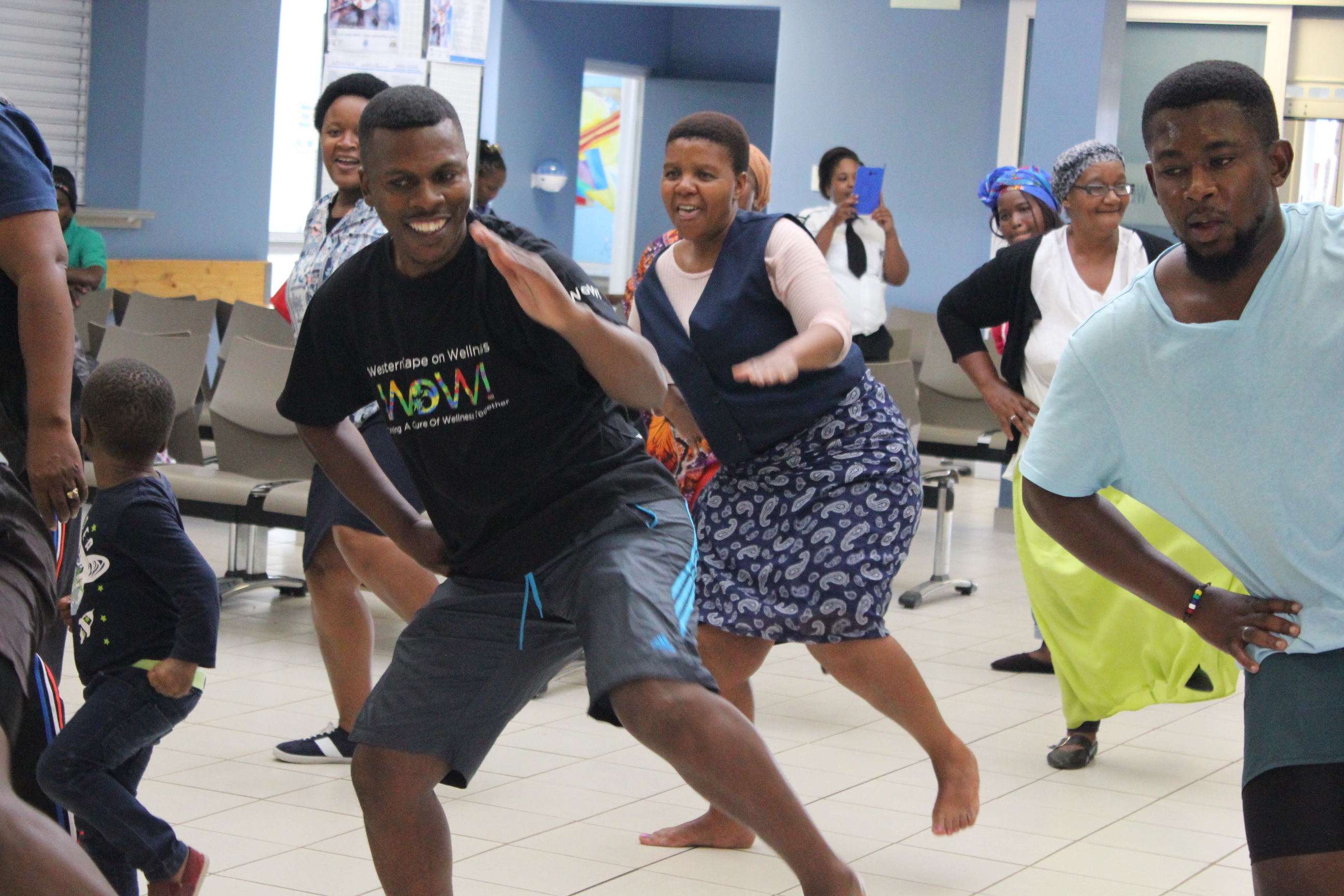
News
Spotlight on Diabetes
You might have heard or read about diabetes, or you know someone with diabetes, or perhaps you have diabetes. Much has been done to raise awareness of the impact that diabetes has on the individual and family. World Diabetes Day on 14 November 2019 will once again put the spotlight on prevention and lifestyle changes such as regular check-ups, achieving a healthy body weight and exercise.
Diabetes was the fifth leading cause of death in the Western Cape accounting for 25 229 deaths in 2016 (Statistics SA report Mortality and causes of death in South Africa, 2016: The ten leading underlying natural causes of death for males and females, 2016).
You are at risk of developing Type 2 Diabetes, if:
• You are over 45 years old;
• You exercise less than three times per week;
• You have high blood pressure;
• You are overweight; and
• You have a family history of Type 2 diabetes.
“It is important to prioritize healthy lifestyles. The WCG through its Western Cape on Wellness Healthy Lifestyles initiative is trying to reach as many communities as possible. Physical activity and healthy eating are considered essential in combating a number of lifestyle diseases, including diabetes. Many deaths and complications can be avoided. We would therefore like to encourage people to go for screening. The Department has free testing available at all clinics when clients go for routine visits. Those with a strong family history of diabetes are often at risk of developing the disease,” says Minister Nomafrench Mbombo.
Diabetes is a condition in which your body is unable to use the glucose from the food you eat. Glucose comes from foods such as breads, cereals, pasta, rice, potatoes, fruits and some vegetables. To use glucose, your body needs insulin, which is made by a gland in your body called the pancreas. The disease affects one’s metabolism which can cause excessive urination and continuous thirst. There are two types. Type 1 occurs when the pancreas stops producing insulin. These patients must inject insulin to survive. Type 2 diabetes is caused when the insulin, which the pancreas produces, is either not enough or does not work properly. Approximately 85–90% of all people with diabetes are type 2, and many people who have this condition are undiagnosed.
Early diagnosis of diabetes is extremely important for complications to be prevented or delayed. If you are over 35 and have any of the risk factors, you should be tested every year. A simple finger-prick test at your local pharmacy or clinic can diagnose the strong likelihood that you may have diabetes within a minute.
Diabetes is a serious illness. If it is left untreated or is not well managed, the high levels of blood glucose associated with diabetes can slowly damage both the fine nerves and the small and large blood vessels in the body, resulting in a variety of complications. These include heart disease, blindness, amputation, kidney disease and erectile dysfunction or impotence. The good news is that with careful management, these complications can be delayed and even prevented, but early diagnosis is very important.
Symptoms of diabetes:
• frequent urination
• excessive thirst
• increased hunger
• unusual weight loss
• tiredness
• lack of interest and concentration
• blurred vision
• frequent or recurring infections
• cuts and bruises that are slow to heal, boils and itching skin
• tingling and numbness in the hands or feet
• vomiting and stomach pain (often mistaken as the flu)
These symptoms may not all present together, which is why it is important to go for regular blood glucose testing. Testing is free at any Western Cape Government clinic.
How is diabetes treated?
Having diabetes need not mean the end of a normal, healthy life. People with diabetes need to first accept the fact that they have the condition and then learn how to manage it. This takes commitment and perseverance.
The goal of diabetes management is to bring blood glucose levels into the normal range, that is, between 4–6 mmol/l.
There are various aspects to good diabetes management.
These are:
• Education – Knowing about diabetes is an essential first step. All people with diabetes need to learn about their condition in order to make healthy lifestyle choices and manage their diabetes well.
• Healthy eating – There is no such thing as a 'diabetic diet', only a healthy way of eating, which is recommended for everyone. However, what, when and how much you eat plays an important role in regulating how well your body manages blood glucose levels. It's a good idea to visit a registered dietician who will help you work out a meal plan which is suitable to your particular lifestyle and needs.
• Exercise – Regular exercise helps your body lower blood glucose, promotes weight loss, reduces stress and enhances overall fitness and enjoyment of life.
• Weight management – Maintaining a healthy weight is especially important in the control of type 2 diabetes. Make an appointment to see a registered dietician who will work out a meal plan to help you lose weight.
• Medication – People with type 1 diabetes require daily injections of insulin to survive. Type 2 diabetes is controlled through exercise and meal planning and may require diabetes tablets and/or insulin to assist the body in making or using insulin more effectively.
• Lifestyle management – Learning to reduce stress levels in daily living can help people manage their blood glucose levels. Smoking is particularly dangerous for people with diabetes.
Nadia Ferreira
Principal Communications Officer
Garden Route and Central Karoo Districts
Western Cape Government Health
Town Clinic,Plettenberg Bay
Tel: 044 533 3846


